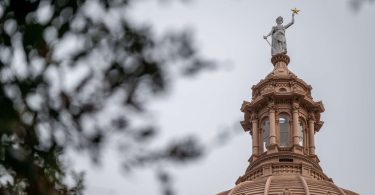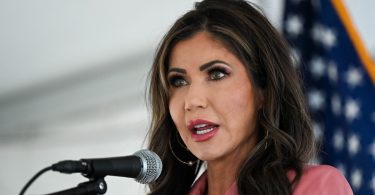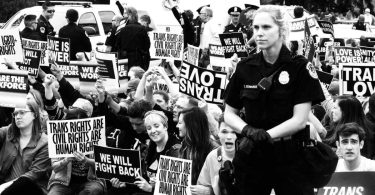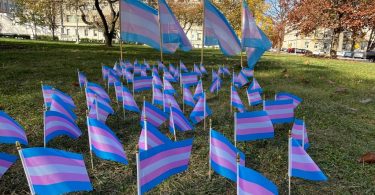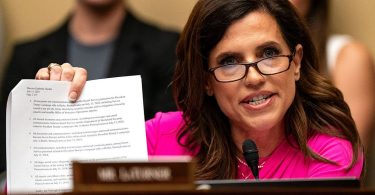Tourism to Nepal can mean a lot more than climbing Mout Everest in Nepal.
One out of three people in the United States experiencing mental issues during the ongoing COVID-19 crisis. FInding back to oneself, getting inner-peace, and explore the potential in ourselves is what a niche in tourism could mean for a new age of travelers. Lord Budda may help with it, and Nepal is the birthplace.
This may however have to wait since Nepal’s borders are currently closed for tourism. Unconfirmed reports say this may change after October 16
Today Pankaj Pradhananga is sharing his personal experience when he visited a Buddist community and socially distancing himself with a purpose to find his own inner peace.
Pankaj Pradhananga comes with experience in the Tourism industry for over 2 decades. He holds an MBA from Kathmandu University School of Management (KUSOM) with a specialization in CRM (Marketing).
He is a Director of Four Season Travel & Tours, charter President of Tourism Toastmasters Club, Area Director of A6 in District 41, and also an adjunct faculty member at ACE Institute of Management in Kathmandu. He is considered to be a pioneer of Inclusive Tourism initiatives in the Himalayan region. He has spoken in a number of workshops/conferences on responsible tourism and delivered Guest lectures in Nepal, Europe, and the USA.’
Pankaj explored something that a visitor may also so hungry to explore – and it doesn’t have to cost a lot of money. Click here for more on Pankaj
Automatically generated transcript (errors included)
Juergen Steinmetz:
Namaste and Aloha. My name is Juergen Steinmetz. I’m turning you from livestreamed on travel in Honolulu, Hawaii. And with me is my good friend. I know for many, many years, it doesn’t mean we’re old, but I knowPankaj many, many years, I cannot pronounce your last name. So you’re going to tell us your last name, but he’s joining us from one of my favorite places in the world.He is joining us from Nepal. It is a destination that everyone in their life should at least see one time I have to admit I never saw Mount Everest because it was cloudy. So I have to keep coming back to actually see is, but I saw it from the plane.
New Speaker:
So it’s, it’s stunning, but everything in Nepal is it’s a little bit different than in many other parts of the world. And Pankaj, runs a a company, an inbound tour operator by the name of Four Seasons travel. He is very experienced, , with American travelers and has been doing this for many, many years and, uh, was COVID and everything else going on in the world. There are actually a lot of reasons to travel to Nepal, even during these times. And it’s not all mountain climbing and there’s way more in it. He will tell us a little bit more about himself and, and, the new way of exploring Nepal from the inner self.
Pankaj Pradhananga:
Aloha Mahalo. And thank you. As you said, you came to Nepal several times, but you’ve not been able to see Mount Everest. And this reminds me 1923, a New York times, reporter was setting up for his third attempt to climb Mount Everest 1923. So when he was asked why he wanted to climb Mount Everest, , his answer was very simple. In three words, he said, because it is there. Mallory did not say that I’m the best Mountaineer or I wanted to satisfy my ego to become the first person on the summit. He simply said, I want to climb Everest because it is there. So that sentence has become a guiding mantra to many people, explorers, seekers, risk takers entrepreneurs. So why Nepal or for that matter Himalaya matters is not just for simple holiday trip. Yes. As you said, it is, and it could be a potential starting point of inner journey for many, unfortunately,this climber in 1923 could not make it on the third attempt.
Pankaj Pradhananga:
He lost his life, but he became a hero right until his dead body was found in 1999. And the rest is history. If you look at the history of traveling, perhaps in the early, uh, leisure traveling or traveling for the purpose of not just owning the living was for pilgrimages, right? Whether people traveled to Mecca or who’s traveled to all the mountain destination of Lord Seba or Mount Kellogg’s in present day, Tibet people traveled to find the bigger meaning of life. And as the Pilgrim is or trips to release. So fate sites have become far easier. Of course, the present point in time of COVID-19 is challenging. But if you look back, it has been a lot easier. People can travel and, uh, satisfy or earn the religious credits. But beyond that, when we traveled to as a seeker or to really find ourselves what Socrates said almost 2,500 years ago, no dye self.
Pankaj Pradhananga:
So I have found many people in the journey of organizing trips for people who come to the Himalaya, whether they come from far of places like North America or South America or Europe at times I used to wonder like, what do they come here for? They have better roads, bigger houses, nicely organized, you know, built places. But what do the look for in Nepal or in the Himalaya? But later I understood as I traveled with them, I organize their trips. It is not just what the naked eyes could see. They come here to see things that is not seen by the eyes or feel the energy, which is not touched by the hands. And y’all going, like, I can tell you, yes,
Speaker 3:
People have come here to find what did they didn’t know it existed or not. But as they came, they felt that there’s something divine, not only in the morning moments or in the mountain, but even in the streets of Kathmandu. This reminds me a lady who I met just before COVID locked down. She was 70 plus 75, 76 back then from Austria doctor, a medical doctor. And he came to a guard Mondo on a trip for almost two weeks, checked into a hotel. And then he just came out of a hotel only two days for the visitor pattern units, creditors site, and to go to a Hill near Kathmandu. And I was pretty curious, like what brings her to Katmandu and since just doing tour tours or two sites things. So I went to see her when she was in Parton and I invited her over a cup of coffee.
Speaker 3:
And I asked very politely, not like, what brings you to Katmandu and why are you not traveling so much? And she said, wankers. I came here several times, first time in early nineties. And I kept coming back and probably this is my last trip. Not only to Nepal, but out of Europe is I’m easing. And I probably will not be able to take long haul flights at that point in time, it was really not a threat still. And she said, the reason why I wanted to conclude my international journeys or trip is very simple. When I came here for the first time and several trips I made to Nepal, I found one amazing fact here in the mountains or in the streets of Kathmandu, that people are not waiting to be happy. And I asked, so what do you mean about not waiting to be happy? And they said, I’ve seen people, whether in the Western world or in developed, developed civilization or countries, the wait for happiness, they believe that the way happiness is somewhere in the distant future, not in now, the saving of the wait for the holiday of there lifetime, or they want to wait for the cars to become happy. But what I noticed in Katmandu, they are just happy with whatever they have, wherever they are. And I have not seen people who are waiting to be happy. And then I felt it was something very deep.
Speaker 3:
And she said, this is what brought me here. And of course, people come to Nepal, but it’s mountains because yes, the Himalaya or Everest catches the attention. It has got that full element. It pulls people to Nepal or in the Himalayan region. But once they are here, they realize that it is more than mountains. And then they keep coming back because of the people. So in many cases, I have realized that the people who come the traveler, who come to Nepal to take great picture from the base camp of Mount Everest, or to go on a tracking journey. But at the end of the trip, most of them, they take more than the pictures. They take more than that experience. Most of the time they get that kind of spiritual spark as they go and stay in the basic losses in the tea houses far from modern comfort, or when they go and eat tea or lunch Dalbar, which is simple rice and lentil made by the local tea house owners. And they find those four very nutritious booked with lot of warm and very feeling. So at times it gives them a realization. And then there has been many stories. Uh, Thomas, if I may tell you a very recent though, there are many, it was a, a top executive from Microsoft and he was working as marketing director in Asia, Pacific based out in Australia, and finally got leave from his job after working frantically for six years. And guess what? He just chose to be a backpacker. He just took his backpack and
Pankaj Pradhananga:
Headed to Armando. He took a flight, landed in Kathmandu. And the next day he was on the foot Hill of an opponent. And there, he got connected in the BC tea house with the local people, as he was setting up or heading towards the round and opponent track that lasted for three weeks. And as he was talking to the local tea house owner, and he had never seen that kind of relays, it was from us. And he was curious like, how does local school look like? And fortunately he met a man. He was a resource person for schools in that region. So he was in the inspection trip. So out of curiosity, arcs that gentleman. So would you mind if I join you because I’m very curious to see, see the schools in up in the mountain area. And he said, it’s fine. If you join me up at the six o’clock in the morning, it’s right on the way.
Pankaj Pradhananga:
So you can join me. So this gentleman is simply sort of early in the morning to follow that Nepali official educational official of that reason. And after walking about an our time, they were in the school and to his disbelief, that was not kind of the school he had ever imagined in the Western world. The old packed floor kids like Sandra and in the can, right? The corrugated seed on the roof. But when they entered that school, the kids were so excited. They greeted in perfect English. Good morning. So as they are, English is taught in the file. So right from the primary school. So he was quite impressed and he was given a tour by the headmaster. So he saw a few classes, not very different. The classes were on, kids were excited. And at the end, when he was brought for a cup of tea with tea is very much offered everywhere you go in the polyatomics well in the city or in, up in the mountain.
Pankaj Pradhananga:
So he was offered a cup of tea and, uh, and he looked around and he was pretty curious because he did not see a single books, single book until that moment. And then he asked the headmaster. So do you have a library or do you have books around? Oh, yes. Yes we do have. And he yelled and a teacher came after three minutes. We brought a trunk, a metal box with a big backlog opened. It took out a few books, a lonely planet guidebook left by some Cracker, a friend’s love story with a kissing, right on the cover, which was not really suitable for the kids.
Pankaj Pradhananga:
I got that crusty novel. And then he took out a map, a world map where USSR was a country and East Germany existed, something that was already obsolete. Right. They had kept it so carefully, safely locked his heart sank. He could not believe. And it gave him a lot of things. And he said to the headmaster, so would you mind if I send you a few books? And the headmaster said, Oh, we would love to, because we want to inculturate reading habits among these students. So he left for his Trek next couple of weeks. He concluded his trip, got back to Godman too. And he sought an email to his friends. If you have books, which is good for school kids, please send it to my home in the U S he headed back to his work in the U S in Australia. And after a month or two, he got an email from his dad that all the books started coming five, 10, and a room full of books.
Pankaj Pradhananga:
So the challenge was how to bring those books to Nepal. That village is in the [inaudible], but he used his contacts and he managed to bring those books into his guide. He informed the school that the attractor we had promised to bring books is coming back. And he just wanted to go and hand over the books. But to his surprise, when he arrived very close to the village, he saw that there was a big celebrations going on. There were Gates made out of banana trees, garlands for him, music, the local music. So the whole village was waiting to welcome him to the village called bound data. As the top executive for Microsoft, he had checked into the most luxurious hotels, four seasons, or you name it red carpet, welcome, but never in life. He had felt that warm, that genuine hospitality, that genuine gratefulness, and as he distributed Canada over the books, and he headed back to Garth bundle, you already talking to himself, he was telling himself that whole, you can’t make your boss any Rita, because he was already the richest man on the planet is that the purpose of your life should perhaps be to change the lives of these kids who are deprived from the basic access to reading and books.
Pankaj Pradhananga:
So he kind of got the calling of his life. And as he got back to his work, he already decided that I’m not going to continue what I was doing. I would rather change the lives of the kids. So in the year two, he quit a job from Microsoft. GE started an NGO called room to read, started publishing books for kids in English and local languages, libraries, and later schools. And now this room to read has become a global NGO or international NGO started initially in Nepal. Now it does work across the globe in Africa, in Asia, in South America and it’s changing lives. So the point is a very simple backpacking trip to Nepal. Not only changed the course of life of the tracker. His name was John Wood, w O O D. And he is the founder of room to read. Now, he’s doing amazing work, searing the goodness through education. And that is one of the many examples. That’s not the only example, a trip that not just change the course of his life, but it changed the lives of many, many kids around the globe. That’s a fascinating story
Juergen Steinmetz:
And
Pankaj Pradhananga:
Come back, but you can’t quit. You told her news or your travel news empire. I know,
Juergen Steinmetz:
Well, it’s not an empire, but I guess I could do it from the pole. Why not? I mean, you guys have internet, right? It’s a global thing, but it’s a fascinating story punk. And this confirms once more tourism is a business of peace and a people business. It’s not about all white Sandy beaches and beautiful cities and fancy food and luxury hotels. There’s more to tourism. And I think Nepal is one of these destinations where you can explore this. And, um, I would love to get more of your stories. I’m sure this isn’t the only story you can tell about Nepal. And, um, I think is so much for being on our podcast this time. And, um, I encourage our readers. If you have any questions, comments, or you want to get in touch with Pankaj, just simply go to livestream dot, travel and click on contract, and we’d be happy to forward your question or your information. And if you really wanted to go on a different type of trip, not only to explore the par, but to explore yourself while you’re in Nepal, the pancake is the person really to contact. I think, thank you so much fun kind. I must stay. And hopefully we have you again, uh, very soon, and please say, keep in touch and, uh, enjoy your day. And then Paul, and some of the fantastic food. I really miss the food. It’s another great thing about the boy.
Pankaj Pradhananga:
Thank you, Thomas. It’s really lovely. And, uh, I’m sure we can help many people in the inner voices of discovery. Thank you from the Himalaya. Thank you from Katmandu. Okay. Take care. Bye bye. Bye bye. Thank you. Bye.
Mediation in Nepal
Meditation has gained immense popularity in the last decade. There are many meditation centers in and around Kathmandu.
Nepal Vipassana Centre runs ten-day courses on meditation. A strict regimen is followed here throughout the course. Daily meditation begins at 4:30 am, and silence is kept for the entire ten days. To register or pick up a pamphlet on the course, visit the centre’s Kathmandu office (Sun-Fri 10 am-5.30 pm) in the courtyard of Jyoti Bhawan, in Kantipath. All courses are funded by donations.
Vipassana is one of the most ancient meditation techniques. Long lost to humanity, it was rediscovered by the Buddha more than 2,500 years ago. Vipassana means ‘to see things as they really are’. It is the process of self purification by self observation. One starts by observing natural breath as a means to concentrate. With this sharpened awareness, one proceeds to observe the changing nature of the body and mind and experience the universal truth of impermanence, suffering and attain a state of egolessness.
The entire path (Dhamma) is a universal remedy for universal problems and has nothing to do with any organized religion or sectarianism. For this reason, it can be practiced freely by all without conflict of race, caste or religion; in any place, and at any time and will prove equally beneficial to all.
Vipassana is the ‘art of living’ which frees the individual from all the negativities of the mind, such as anger, greed and ignorance. It is a practice which develops positive, creative energy for the betterment of the individual and society. The Vipassana Center is located in Budhanilkantha near the entrance to the Shivapuri National Park.
Nepal Entry regulations due to COVID-19
There is no updated information on Nepal Government Websites, including the official Nepal Tourism Board website in regards to arrival requirements during COVID-19.
The US Embassy in Nepal has the following information:
- The government announced September 14 that all land ports of entry into Nepal remain closed through midnight the night of October 16. There are a limited number of border points through which returning Nepali citizens are allowed entry.
- No foreigners are permitted entry to Nepal at this time. The government of Nepal has approved exceptions for a diplomatic, international organization, and some international non-governmental organization personnel.
- The Center for Disease control reminds people of the risk in Nepal for COVID-19 is high.


